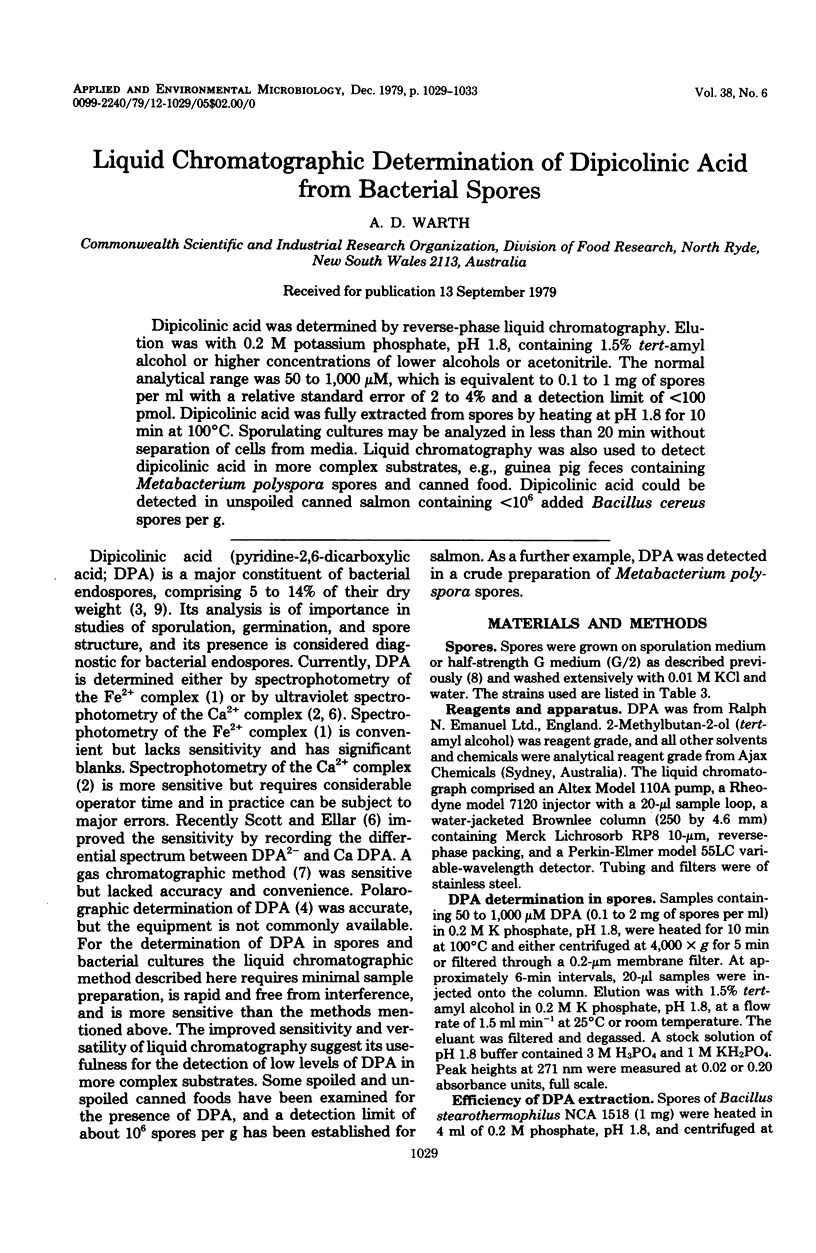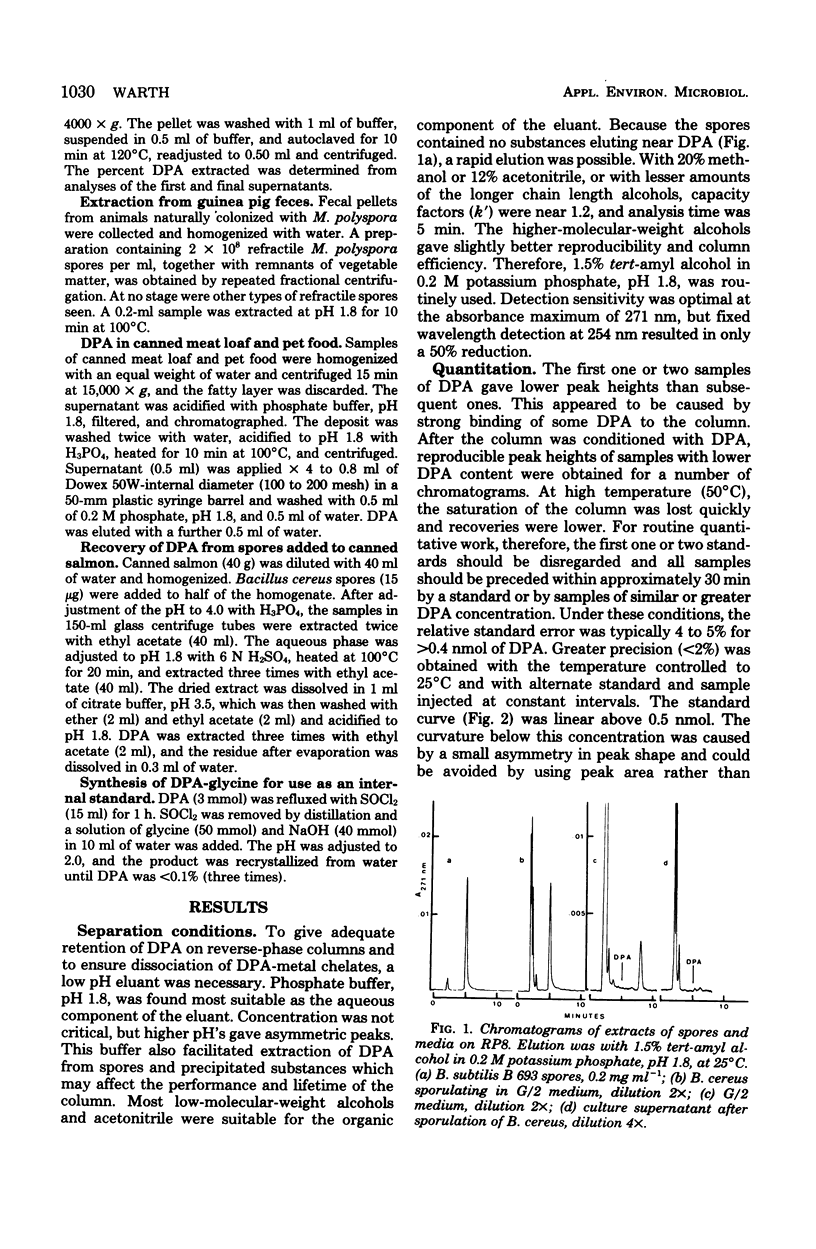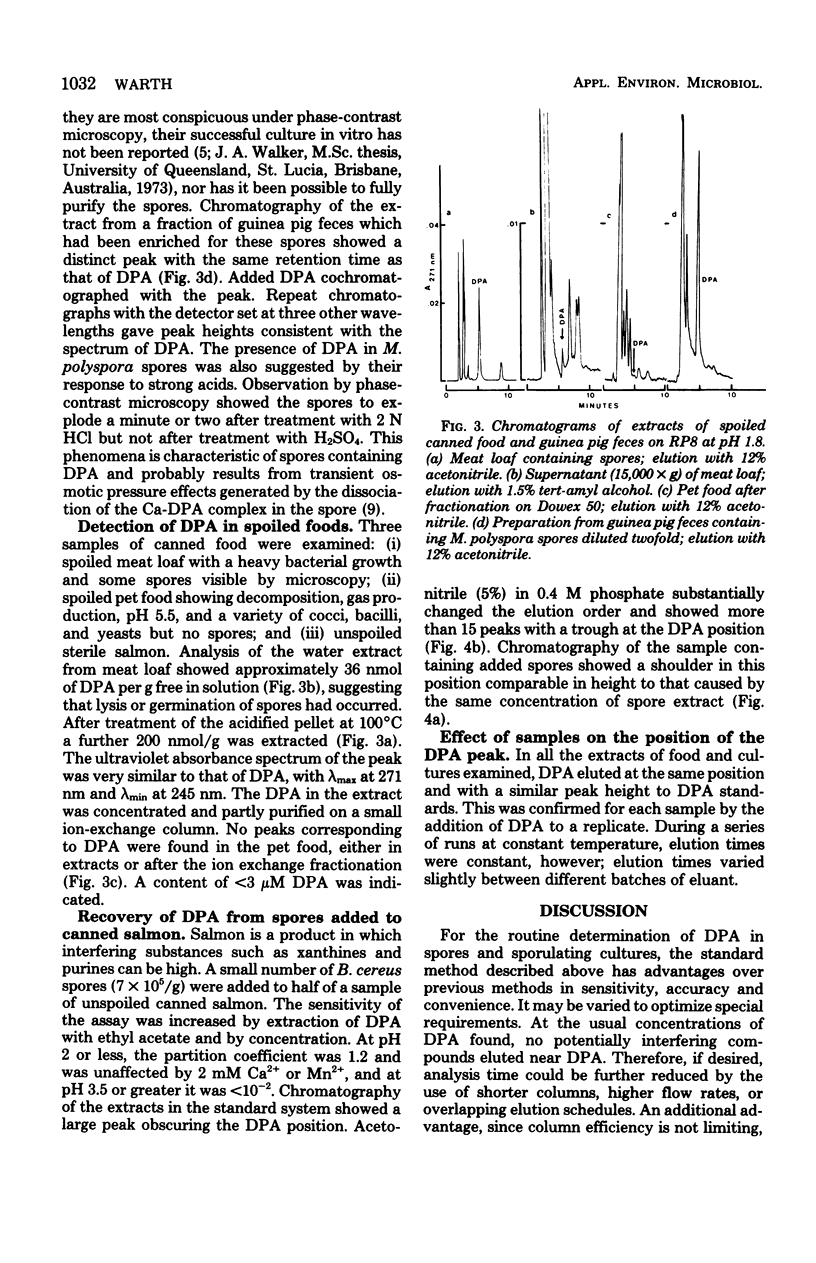Abstract
Dipicolinic acid was determined by reverse-phase liquid chromatography. Elution was with 0.2 M potassium phosphate, pH 1.8, containing 1.5% tert-amyl alcohol or higher concentrations of lower alcohols or acetonitrile. The normal analytical range was 50 to 1,000 μM, which is equivalent to 0.1 to 1 mg of spores per ml with a relative standard error of 2 to 4% and a detection limit of <100 pmol. Dipicolinic acid was fully extracted from spores by heating at pH 1.8 for 10 min at 100°C. Sporulating cultures may be analyzed in less than 20 min without separation of cells from media. Liquid chromatography was also used to detect dipicolinic acid in more complex substrates, e.g., guinea pig feces containing Metabacterium polyspora spores and canned food. Dipicolinic acid could be detected in unspoiled canned salmon containing <106 added Bacillus cereus spores per g.
Full text
PDF




Selected References
These references are in PubMed. This may not be the complete list of references from this article.
- JANSSEN F. W., LUND A. J., ANDERSON L. E. Colorimetric assay for dipicolinic acid in bacterial spores. Science. 1958 Jan 3;127(3288):26–27. doi: 10.1126/science.127.3288.26. [DOI] [PubMed] [Google Scholar]
- Porter G. S., Brown M. W., Brown M. R. Polarographic determination of dipicolinic acid in the presence of bacterial spores and vegetative cells. Biochem J. 1967 Feb;102(2):19C–20C. doi: 10.1042/bj1020019c. [DOI] [PMC free article] [PubMed] [Google Scholar]
- ROBINOW C. F. Kurzer Hinweis auf Metabacterium polyspora. Z Tropenmed Parasitol. 1957 Mar;8(1-2):225–227. [PubMed] [Google Scholar]
- Scott I. R., Ellar D. J. Study of calcium dipicolinate release during bacterial spore germination by using a new, sensitive assay for dipicolinate. J Bacteriol. 1978 Jul;135(1):133–137. doi: 10.1128/jb.135.1.133-137.1978. [DOI] [PMC free article] [PubMed] [Google Scholar]
- Tabor M. W., MacGee J., Holland J. W. Rapid determination of dipicolinic acid in the spores of Clostridium species by gas-liquid chromatography. Appl Environ Microbiol. 1976 Jan;31(1):25–28. doi: 10.1128/aem.31.1.25-28.1976. [DOI] [PMC free article] [PubMed] [Google Scholar]
- Warth A. D. Molecular structure of the bacterial spore. Adv Microb Physiol. 1978;17:1–45. doi: 10.1016/s0065-2911(08)60056-9. [DOI] [PubMed] [Google Scholar]
- Warth A. D. Relationship between the heat resistance of spores and the optimum and maximum growth temperatures of Bacillus species. J Bacteriol. 1978 Jun;134(3):699–705. doi: 10.1128/jb.134.3.699-705.1978. [DOI] [PMC free article] [PubMed] [Google Scholar]



